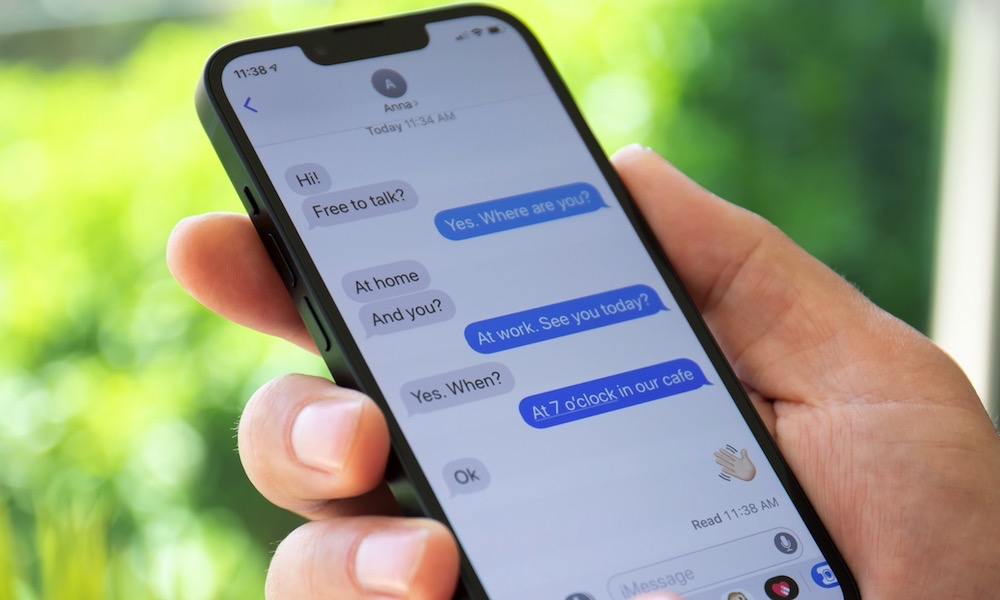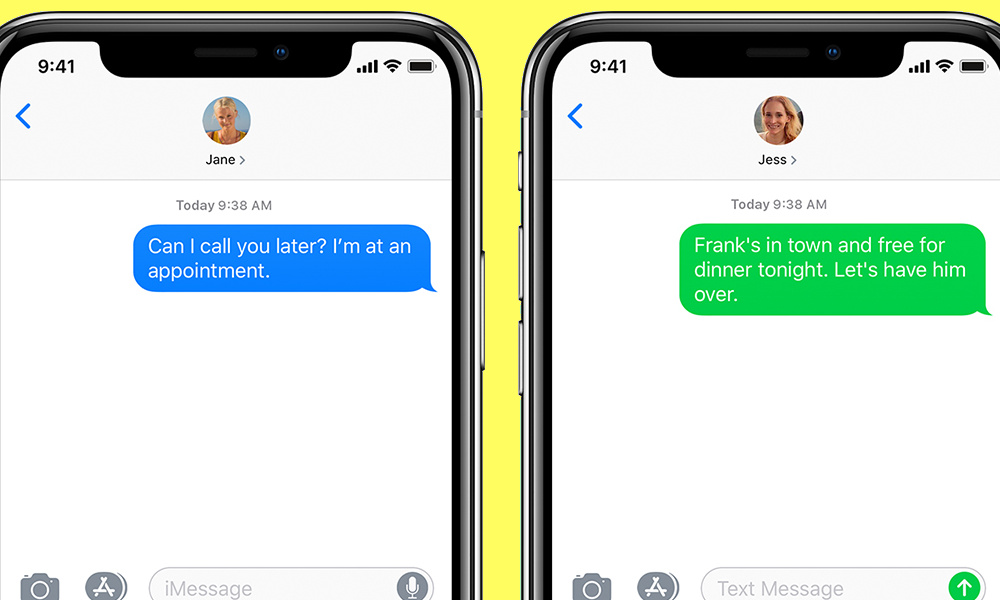It’s Official: Apple Will Bring RCS Support to the iPhone Next Year
 Credit: DenPhotos / Shutterstock
Credit: DenPhotos / Shutterstock
Toggle Dark Mode
It seems like it’s a season for surprising twists from Apple. Yesterday, the company announced an extension of its free Emergency SOS via Satellite services for all iPhone 14 users, and now it’s done a remarkable turnaround with an official announcement that it’s about to open up its proprietary messaging services to a much larger world.
Specifically, after years of stubbornly holding out, Apple has decided to embrace Android users by supporting Rich Communication Services (RCS) in the iPhone Messages app, allowing iPhone users to communicate more effectively with those on other platforms without resorting to archaic SMS technology.
While RCS has become a core part of Google’s Android messaging platform, it’s actually an open standard put forward by the GSM Association as a replacement for SMS/MMS. While the technology arguably took some time to mature before it was ready for prime time due to sluggish adoption by carriers, it’s taken off since Google took matters into its own hands.
Still, Apple continued to dismiss RCS as irrelevant, with Apple CEO Tim Cook going so far as to be downright dismissive of the technology. When asked about RCS during last fall’s Vox Media Code 2022 event, Cook insisted it wasn’t a priority for Apple customers.
I don’t hear our users asking that we put a lot of energy in on that at this point. I would love to convert you to an iPhone.
Apple CEO Tim Cook.
Now, a year later, it seems that Apple is rethinking that position.
The news of Apple’s change of heart came in a statement sent out by the company to several media publications. It was first reported by 9to5Mac and also shared on X (the social media network formerly known as Twitter) by Bloomberg’s Mark Gurman.
Later next year, we will be adding support for RCS Universal Profile, the standard as currently published by the GSM Association. We believe RCS Universal Profile will offer a better interoperability experience when compared to SMS or MMS. This will work alongside iMessage, which will continue to be the best and most secure messaging experience for Apple users.
While it’s not clear if this will solve the Green Bubble phobia, adopting RCS should at least allow iPhone and Android users to get iMessage-like features when communicating through their respective native messaging apps. This would include things like typing indicators and read receipts, as well as support for full-resolution images and videos.
Nevertheless, Apple is clear that RCS will operate “alongside iMessage,” which means some features will remain exclusive to Apple’s proprietary messaging platform. Likely, RCS will be treated as an enhanced version of SMS, with the coveted blue bubbles still reserved for conversations on Apple’s iMessage network. RCS bubbles will probably still be green. Maybe just a different shade of green.
Although Google has added features like end-to-end encryption to its own implementation of RCS, that’s by no means universal, and it remains to be seen if Apple will play along with these customizations or simply support the baseline RCS standard.
Frankly, we expect Apple to do the bare minimum here and follow the RCS standard. That’s fair, as it’s unreasonable to expect the company to support other vendors’ unique ways of handling RCS, which may not even be practical or possible in all cases.
This means that Apple still doesn’t need to worry about RCS eating its lunch. It probably never did. iMessage has supported end-to-end encryption since its inception, and with recent iOS updates, we’ve gotten the ability to edit and unsend messages, exchange stickers, send money using Apple Pay Cash, and more, none of which are supported by RCS.
However, the gap between what iMessage could do and what SMS/MMS was like was so absurd as to create a horrible user experience for anybody who had friends and family who weren’t using iPhones — which was seemingly Apple’s plan for never bringing it to Android. Still, it’s understandable why Google hyperbolically accused Apple of “bullying” Android users with green bubbles, even if that wasn’t an entirely fair statement — the green bubbles existed long before iMessage was even a gleam in Apple’s eye.
It will be a welcome change that iPhone and Android users can at least communicate using something that feels more like it belongs in the 21st century. There’s no doubt that iMessage will continue to improve and stay ahead of RCS, but at least it will feel like a value-added service rather than the only viable option.







